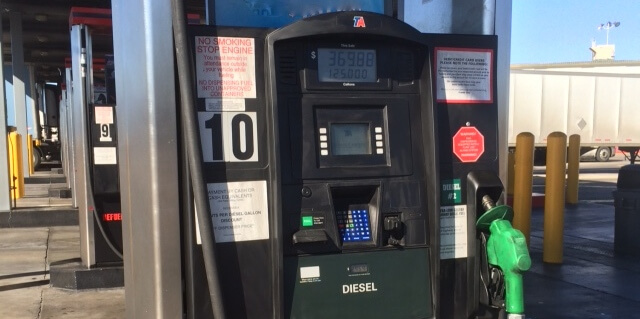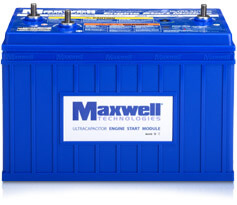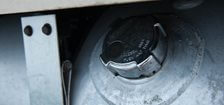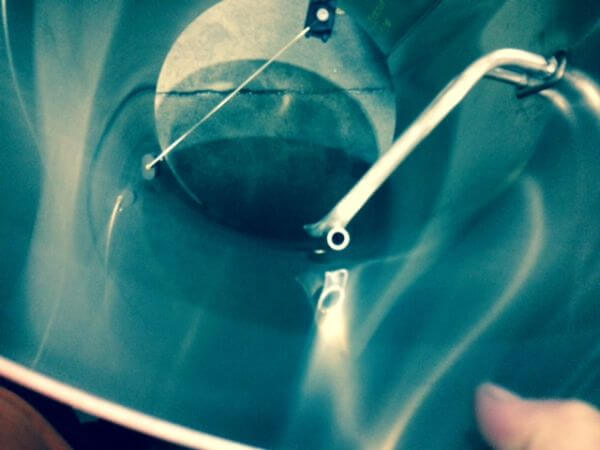It's a Team's Life

Do You Need Fuel Additives
 Do You Need Fuel Additives
Do You Need Fuel Additives
Winter is quickly coming, with winter comes very cold temperatures. Along with cold temps comes a problem that we do not encounter the rest of the year. Hard starting, airlines frozen, parts breaking for no apparent reason and fuel gelling.
Taking care of your batteries is the first order of business. Regular cleaning of the terminals and testing of the batteries condition should be a normal part of maintenance. Replace any weak batteries with like batteries or if half of the battery bank is weak i'd replace all of them. New batteries start engines easier.
If you want more confidence when it comes time to start the truck, you might want to consider a Maxwell Engine Start Module (ESM). This device removes ALL the start load from the batteries, helping the batteries live longer. The ESM replaces one of the batteries, and, being an ultracapacitor, it handles the start load with 1800 cold cranking amps, way more than the battery bank has. The ESM is charged by the battery bank but uses none of the battery power to start the truck.
Keeping the engine warm will help about as much as anything. How? Two ways, first is very common and factory installed on most trucks, the block heater. Most are 110v that can be powered with shore power or with an APU. Keep the engine warm and it will start easier. An Espar coolant heater will keep the engine warm using small amounts of diesel fuel to warm the circulating coolant. Keeping the engine ready to start and probably warmer than an electric block heater, without the need of electricity.
Keeping airlines thawed starts with draining the air tanks regularly (daily), especially if you get moisture. Most new trucks come equipped with an air drier. Air driers can only do so much if they aren't serviced regularly (see your owners manual). Look under the truck at the air tanks and drain ALL the tanks, you don't need to drain all the air from the tanks, just get rid of the moisture.
Parts breaking for no apparent reason, well that's just part of trucking.
Fuel gelling is an issue that has been an issue for truckers for, well forever, as long as I can remember for sure. According to Wikipedia #2 diesel will gel at about 17.5ºF (-8.1ºC), we drive in temperatures near that or below. Every truck stop I've ever been in has several products that will purportedly stop gelling or at least lower the gelling point.
Do they work? Probably, at least IF they are used as the label directs. When fuel is over treated it can cause the fuel to gell sooner than if untreated. Most shops, when confronted with a gelled truck, will first dump in anti gel additive. Next is to drag the truck into the warm shop. The warm shop will do the job eventually, but if you had already treated the fuel and it gelled anyway then you may be in for more trouble later, even if you get thawed.
All fuel sold in the US is blended and already treated with additives at the fuel terminal to meet the local weather conditions, before it is even delivered to the truck stop to be sold to truckers. Most truck stops will also use a cold flow improver to offer a secondary treatment for the weather conditions for the area they are located in. This means you are probably overtreating the fuel if you use an over the counter additive, and you may run into gelling issues if you get fuel in one of the southern states and head north into the extreme cold. Also, if the fuel you are buying contains biodiesel, don't drive north, biodiesel will gell at much lower temps than straight #2 diesel. The easiest way to avoid issues is to plan ahead, and buy fuel up north to dilute the fuel in your tanks. You need to take care of yourself, if you are still gelling, do what is needed.
If you are like me and run a Detroit Diesel engine it is advised to NOT use fuel additives, their latest engines recirculate the fuel within the engine to keep the fuel warm, and their frame mounted filters also have a bypass in case of fuel gelling. As far as additives and their results, here is their take on this subject. From Detroit Diesel Corporation DDC-SVC-BRO-0001, copyright (C) 2015av
5.9 Aftermarket Fuel Additives DetroitTM engines are designed to operate satisfactorily on a wide range of diesel fuels. The regular use of aftermarket fuel additives is not required or recommended due to potential fuel injector system or engine damage. Our experience has been that such additives increase operating costs without providing benefit. Aftermarket fuel additive supplements available at most retail stores are intended to be added to the fuel by the customer. These include a variety of independently marketed products which claim to be:
DetroitTM engines are designed to operate satisfactorily on a wide range of diesel fuels. The regular use of aftermarket fuel additives is not required or recommended due to potential fuel injector system or engine damage. Our experience has been that such additives increase operating costs without providing benefit. Aftermarket fuel additive supplements available at most retail stores are intended to be added to the fuel by the customer. These include a variety of independently marketed products which claim to be:
• Cold Flow Improvers (prevents fuel jelling). Lower CFPP (help prevent fuel filter plugging)
• Biocide
• Fuel injection system deposit cleaners or removers
• Oxidative stability
• Cetane Improvers (booster)
• Emission Control Additives
• Fuel Economy
• Smoke Suppressants
• Detergents
• Combustion Improvers
• Icing preventers
 |
| Fuel Tank Draw Tube |
Detroit™ recognizes some of the above listed additives may be beneficial in addressing temporary fuel quality issues, but they should not replace proper fuel selection and handling as described in the above sections of the brochure.
Should a customer decide that a supplemental additive is temporarily required; the following is intended to provide guidance to the customer in selecting and additive partner, evaluating potential safety hazards and deleterious engine effects.
• Choose a fuel additive company with strong technical support both in both the field and laboratory. Fuel additive companies should be able to test your fuel and show that it is deficient in some way and be able to demonstrate that their product fixes the finding (s). Companies such as Afton, Infineum, Innospec, and Lubrizol may be considered. Alternately, choose an additive supplier that works closely with these companies.
• Review a Material Safety Data Sheet (MSDS) or a Technical Product Bulletin carefully for special handling instructions and hazardous material content.
• Get a detailed compositional analysis from the supplier. Ash forming metallic elements and corrosive elements must not be present. Additives containing calcium, barium, zinc, phosphorous, sodium, magnesium, iron, copper, and manganese are known to cause combustion ash deposits that can foul fuel injectors and create deposits which may adversely affect cylinder life. Halogenated compounds containing chloride, fluoride, and bromide are corrosive, as are some sulfur containing compounds. Avoid the use of additives with these components. Also, avoid language that says all in one products.
• Be sure to ask your additive supplier to explain the proper handling, mixing, and storage of the additive(s). Be sure to follow all recommendations made by the additive supplier. Improper mixing and storage can negatively affect the performance characteristics of any additive.
• Many additives act as surfactants; evaluate the effect of water separation characteristics on the fuel in combination with the additive. Refer to Table "Diesel Fuel Specifications" for performance requirements.
• Many commercial diesel fuels today contain performance additives, particularly those marketed as premium diesel fuel. Any supplemental additive being considered must be compatible with the fuel it is to be used in. Evaluate a mixture containing twice the recommended concentration of additive for compatibility to represent an over dosage condition, using the tests listed in Table "Diesel Fuel Specifications".
• Conduct performance evaluation of a fuel supplemental additive in customer equipment for a minimum of six months. Testing should be a side-by-side comparison with and without the additive to verify performance claims. Testimonials do not guarantee similar performance in all applications.
The use of supplemental fuel additives does not necessarily void the engine warranty. However, warranty and repair expenses which are determined, by Detroit Diesel or its representative, to have resulted from a fuel additive will not be covered. Accompany these products with performance data supporting their merit as well as the manufacturer's warranty policy.
DetroitTM will not test or verify the performance of any aftermarket additives. It will not accept responsibility for the use, selection, or hazards relating to the use of such products.
